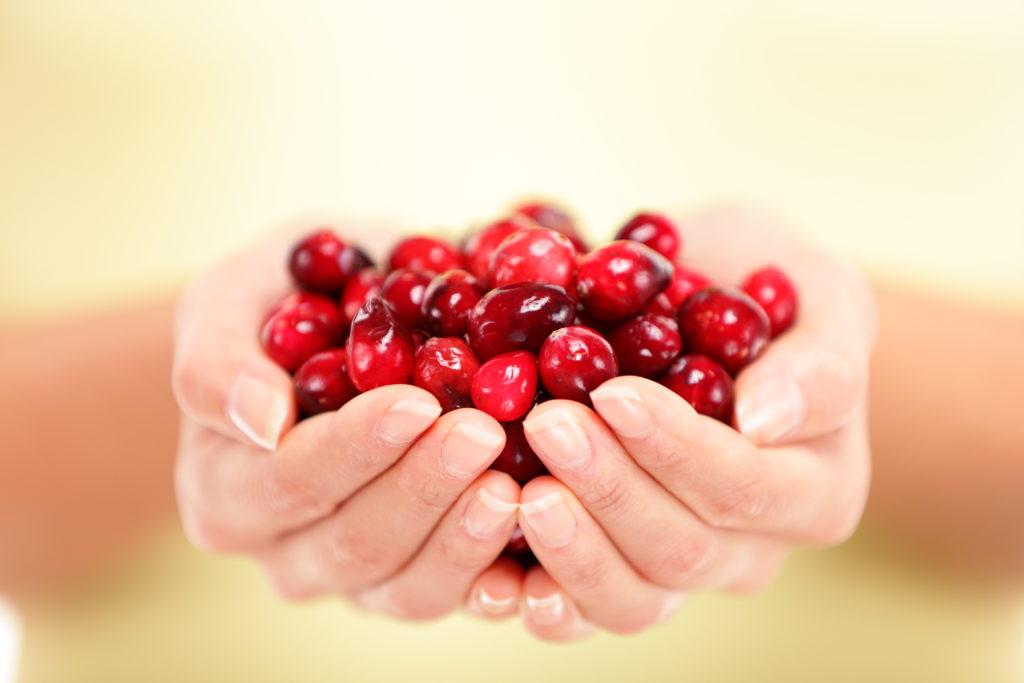
I tend to be hesitant to report on studies of single foods doing amazing things (because many do), but this piece of research still caught my eye.
So, what did this group of researchers from the University of East Anglia find?
Well, they wanted to study the effects of cranberries specifically because they are known to have plenty of flavonoids – healthy compounds which have been shown to have multiple positive effects. This was also studied in an older population of 50- to 80-year olds. Right up my street then. The goal was also to see if it could help with any effects of dementia which is becoming severe in many societies with ageing populations.
They therefore tracked 60 cognitively healthy participants over a 12-week period. Half of the participants consumed powdered cranberries equivalent to 100 grams of fresh cranberries (about a cupful) and the other half consumed a placebo.
What were the results?
Well, the results were pretty impressive. They showed that the cranberry group significantly improved memory function of everyday events (known as episodic memory) but also that the brain exhibited higher levels of oxygenation and enhanced neural functioning. On top of this the cranberry group also exhibited a significant circulating LDL (“bad” cholesterol) decrease.
So, all in that’s top news for cranberries. Whether that is just cranberries is open to interpretation – it is likely the combination of flavonoids that are found in cranberries – but cranberries are particularly rich in them and so it could do you a whole bunch of good. But do remember to keep a healthy diet in general because that will likely have the largest benefits. But if in doubt a cupful of cranberries will do no harm and likely do an awful lot of good!

Andy Habermacher
Andy is author of leading brains Review, Neuroleadership, and multiple other books. He has been intensively involved in writing and research into neuroleadership and is considered one of Europe’s leading experts. He is also a well-known public speaker speaking on the brain and human behaviour.
Andy is also a masters athlete (middle distance running) and competes regularly at international competitions (and holds a few national records in his age category).
Reference
Emma Flanagan, Donnie Cameron, Rashed Sobhan, Chloe Wong, Matthew G. Pontifex, Nicole Tosi, Pedro Mena, Daniele Del Rio, Saber Sami, Arjan Narbad, Michael Müller, Michael Hornberger, David Vauzour.
Chronic Consumption of Cranberries (Vaccinium macrocarpon) for 12 Weeks Improves Episodic Memory and Regional Brain Perfusion in Healthy Older Adults: A Randomised, Placebo-Controlled, Parallel-Groups Feasibility Study.
Frontiers in Nutrition, 2022; 9
DOI: 10.3389/fnut.2022.849902
More Quick Hits
COVID on the Brain
Many COVID-19 patients have reported various neurological symptoms – the well-known brain fog, but also headaches and decreased cognitive function over months and extended periods of time. This even without serious infection or hospitalization. The research seems to...
Life satisfaction after work related to personality traits
As many of you know I have done plenty of work into personality and so found this study interesting. Dusanee Kesavayuth of Kasetsart University in Bangkok, Thailand analysed data from 2,000 adults aged between 50 and 75 in the British Household Panel Survey and found...
Unique regulation of brain in yoga practitioners
Quick HitsDaily brief research updates from the cognitive sciences es, you yoga practitioners knew you were special and here is the science to prove it! In this older study I came across (2018) participants were recruited to see how they dealt with...
Neurodivergence and the lonely brain
Quick HitsDaily brief research updates from the cognitive sciences eurodivergence is term that describes those that are not “neurotypical” such as those with autism and ADHD. In the surge of research into loneliness spurred by the pandemic it has...
Art Engages the Social brain
Quick HitsDaily brief research updates from the cognitive sciences reported in last week’s Quick Hits on how engaging in the arts has a relationship with self-control and avoidance of disagreeable and criminal behaviour and that is why this...
Swearing can increase strength, self-confidence, and risky behaviour
Quick HitsDaily brief research updates from the cognitive sciences wearing is frowned upon in many circumstances but is also used by many people in casual situations and particularly by comedians. So why do we swear if it is taboo? A team of...






